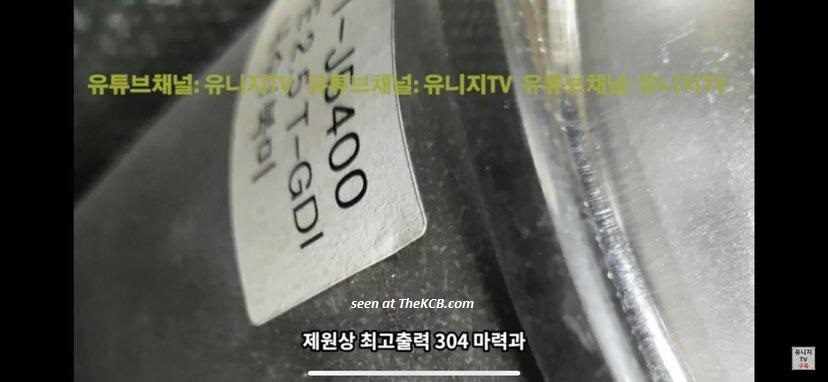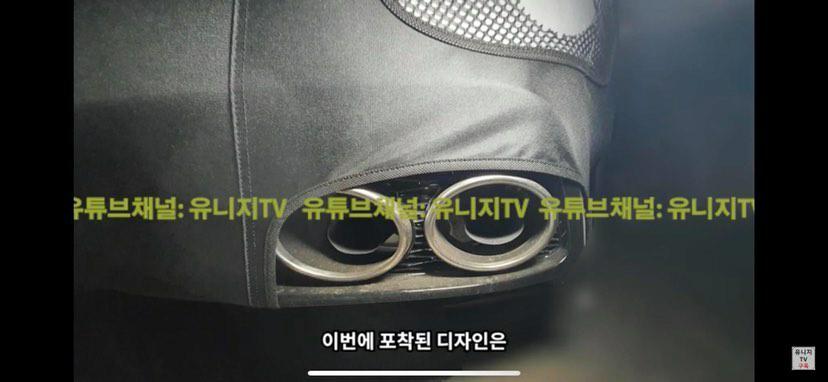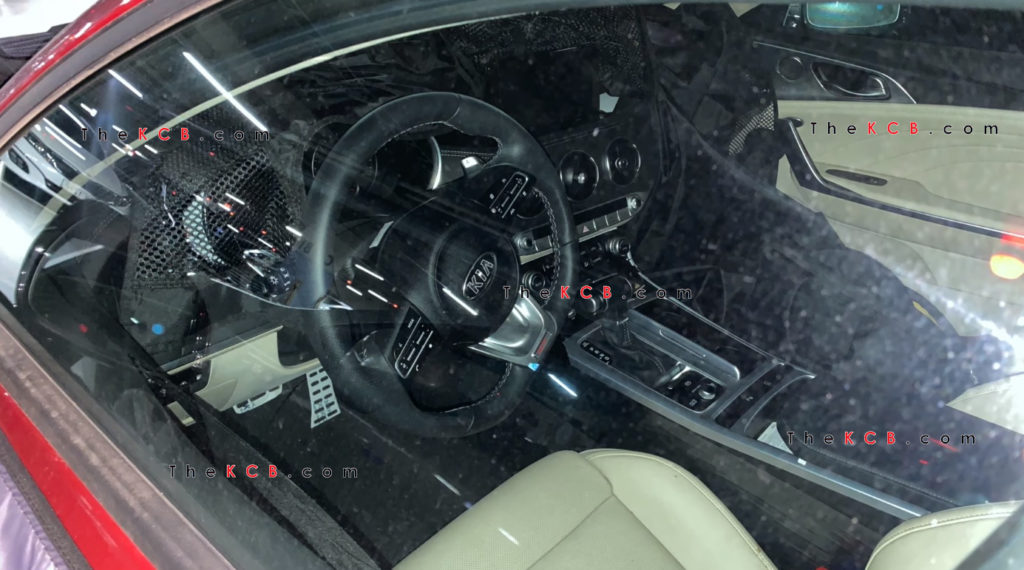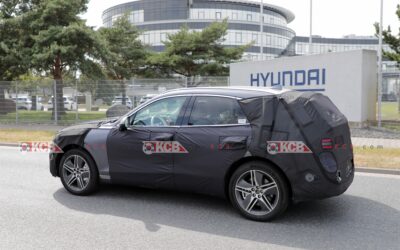After we confirmed powertrain line-up and see the first fully undisguised interior picture of the Stinger facelift, the GT sedan continues finishing its test around the Namyang R&D center, before inminent release, as our colleagues at AutoPost have taken pictures like the one above, that features a Stinger prototype unit with testing dual twin exhaust pipes.
[ads id=”9″]
What we know so far?
There were many months of rumors, confirmations and contradictions, but finally we have the information confirmed ahead of August launch in South Korea. Finally the Stinger facelift (CK PE) receives a new engines and updated the existing 3.3 Twin Turbo.
According to the industry sources, what is updated on the 3.3TT engine is the canister absorption capacity and size, variable valve application, variable exhaust, and ECU specifications. In particular, it is equipped with a sports exhaust system and has a maximum output of 373 horsepower, which is 3 horsepower higher than the previous one.
The variable exhaust system applied to the Stinger facelift is a device that can adjust the exhaust sound generated from the actual exhaust of the vehicle beyond the current Stinger system which is a digital sound generator that is heard only inside the vehicle.
Proof that demonstrate Kia was testing the 2.5 Turbo Engine on a US-spec model
[ads id=”8″]
The picture above corresponds to a Kia Stinger GT facelift prototype (CK PE) that has as few changes as we anticipated, and we can spot only two, the new IT system that despite doesn’t look like having 10,25″ has a different design and D-cut steering wheel that now has aluminium finish instead of black glossy.
The SmartStream G2.5 FR T-GDI engine is identical to the new G80 and GV80 2.5T. It has a maximum output of 304 horsepower and a maximum torque of 43.0 kgm. Compared with the existing 2.0T engine, the highest power and maximum torque are high, and the efficiency and cooling performance are improved through the use of dual-thermal fuel injection and water-cooled intercooler.
Indoors, the infotainment monitor grows from 8 inches to 10.25 inches. The interior layout retains the shape of the current model, and the upper trim includes higher quality nappa leather seats, as well as advanced materials and colors. The dashboard and door trim are covered with leather stitching.
The instrument cluster is replaced with a digital cluster type from the existing analog. Changes in exterior design focus on enhancing detail. The graphic inside the headlamp and the front and rear bumper design are changed, and a newly designed alloy wheels will be introduced. For the rear lamp, horizontal bar type and sequential indicators will be applied.
[ads id=”8″]











